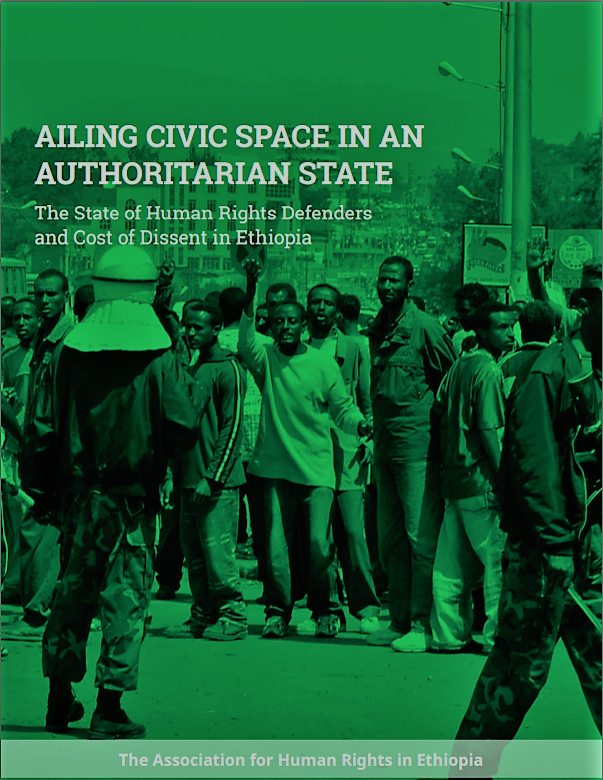Hailemariam Desalegn unexpectedly resigned as both Prime Minister and Chairman of the country's ruling coalition on 15th February 2018 after releasing a significant number of prisoners failed to quell massive protests across the country. Desalegn said that his resignation was an attempt "to facilitate peace and dialogue". One day after the announcement, the government imposed a new six-month state of emergency to prevent more anti-government protests.
Peaceful Assembly
[Photos] #Ethiopia's #Oromia region celebrates release of political detainees https://t.co/OLcmQZikiK
— Addis Standard (@addisstandard) February 15, 2018
On 15th January, Attorney General Getachew Ambaye announced that the country would drop charges against 528 prisoners after two days of "rehabilitation training". The authorities would release 115 suspects at the federal level, along with 361 suspects in the Dilla district and 52 in the Konso district, both in Ethiopia's southern regional state.
Most of the prisoners had been arbitrarily arrested and charged with terrorism during the anti-government demonstrations that started in the Oromia region in late 2015 and during the state of emergency between October 2016 and August 2017. Hundreds have died in the protests and in the successive waves of repression.
Among those released include opposition leader Merera Gudina (Oromo Federalist Congress) and academic Rufael Disasa. Gudina was arrested under state of emergency provisions in December 2016 after returning to Ethiopia from Brussels where he had attended a meeting with European parliamentarians.
On 26th January 2018, Oromia region spokesperson Addisu Arega announced the pardon and release of more than 2,000 prisoners, 1,568 of whom had been convicted while the rest had been under investigation. On 8th February, state-affiliated media outlet, Fana Broadcasting Corporate reported that the government would pardon and release another 746 more suspects and prisoners, among them opposition politician Andualem Arage.
Concerns have been raised by human rights groups, however, over the new state of emergency, especially as the directive gives the authorities sweeping powers to restrict peaceful assembly, association and expression. According to Human Rights Watch:
“Ethiopia’s new state of emergency threatens to block the peaceful expression of views on critical issues facing the country…banning public protest and handing the army sweeping new powers to crack down on demonstrators, media and political parties violates rights and crushes the potential for meaningful dialogue on the way forward”.
In a separate incident, at least five people were killed at a religious festival in the town of Waldiya, in northern Ethiopia, on 21st January after security forces allegedly fired on a crowd reportedly shouting anti-government slogans.
Expression
CPJ Highlights: March 2018 edition: Journalists in Ethiopia: Darsema Sori, Eskinder Nega, Khalid Mohammed, Woubshet Taye, and Zelalem Workagegnehu. https://t.co/9OZTFjnm2n via @pressfreedom
— Nardos Abebe (@nardosabebe799) March 7, 2018
On 10th January 2018, radio journalists Darsema Sori and Khalid Mohammed were released from lengthy prison terms on anti-state charges related to their work at faith-based Radio Bilal. The two were arrested in 2015 for their coverage of the 2012 protests by the Ethiopian Muslim community over government interference in Islamic affairs.
In mid-February, Ethiopian journalists Eskinder Nega (pictured above) and Woubshet Taye were released from prison and pardoned after each serving nearly seven years behind bars – both were arrested in 2011 and convicted in 2012 in unrelated cases. Prior to his release, Eskinder allegedly refused to sign a confession form which falsely stated that he was a member of Ginbot 7, a banned Ethiopian opposition party, in exchange for his freedom.
The Committee to Protect Journalists welcomed their released saying:
"We are pleased that Eskinder Nega and Woubshet Taye are finally free since their arrests and convictions were shameful miscarriages of justice...we now urge the Ethiopian government to drop charges against other journalists and to implement the reforms needed for a free press to flourish".

On 30th January, the exiled Association for Human Rights in Ethiopia launched a new report on human rights and the decline of civic space in the country since 2005. It also includes accounts from journalists, human rights defenders and activists imprisoned during the initial 10-month state of emergency.
Association
More than 30 alleged members of the Ginbot 7 were sentenced to lengthy prison terms of 15 to 18 years on 12th January 2018, while dozens more were jailed in the preceding weeks due to their association with the group. The Ethiopian government claims that the group wants to overthrow the government and has thus designated Ginbot 7 a terrorist group under its contentious Anti-Terrorism Proclamation.
As previously reported on the CIVICUS Monitor, British citizen and opposition politician Andargachew Tsege was tried in abstentia in 2009 for his involvement with Ginbot 7. He was extradited to Ethiopia after being seized from an airport in Yemen in June 2014. He has been on death row for over three years now.
On Tuesday, #Ethiopian officials freed #Oromo opposition leader #BekeleGerba and six of his colleagues from #Oromo Federalist Congress (OFC) after all charges against them were dropped
— UNPO (@UNPOintl) February 14, 2018
Click here for more information :https://t.co/s32SO4gucR pic.twitter.com/EbODv64Z4Q
Bekele Gerba, an opposition leader from the Oromo Federalist Congress and Amnesty International prisoner of conscience, was given a six-month prison sentence on 5th February 2018 for contempt of court after refusing to stand and speak to judges. Previously, he had been given a similar sentence for singing a protest song in court. However, during the mass release of prisoners, Bekele and seven other political figures were cleared of their charges on 13th February and released from jail.